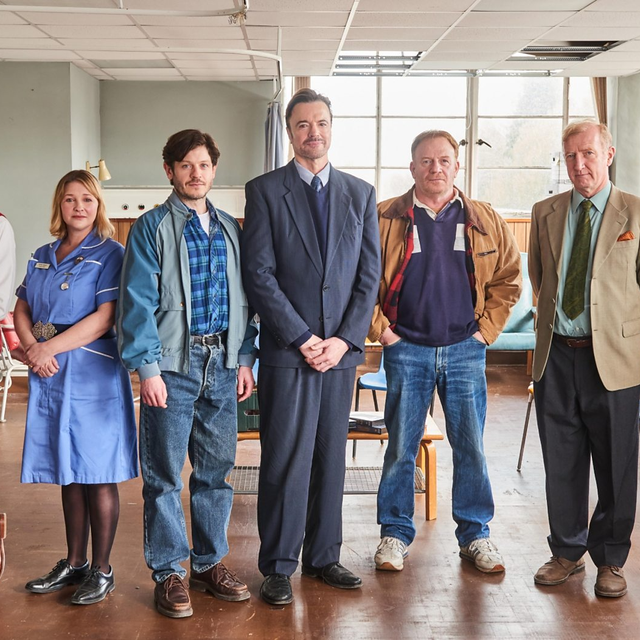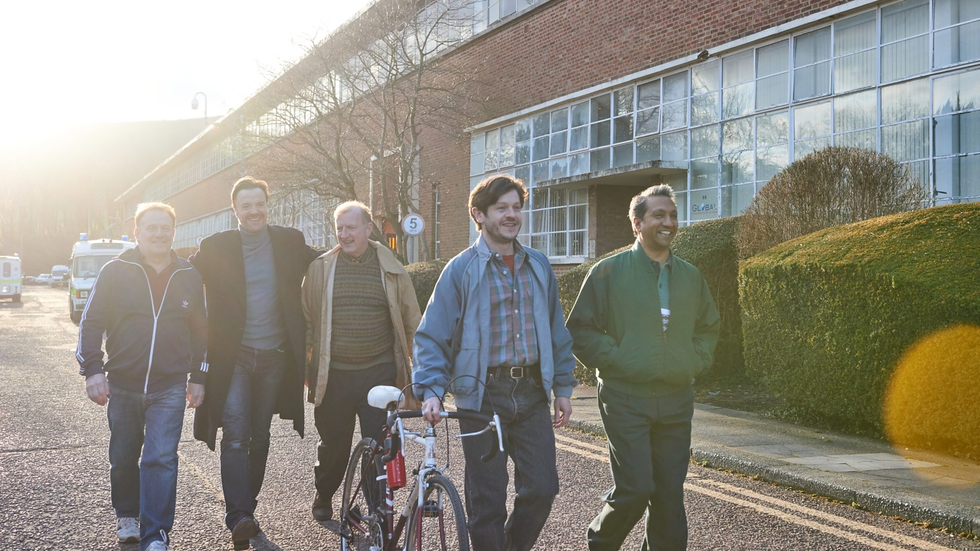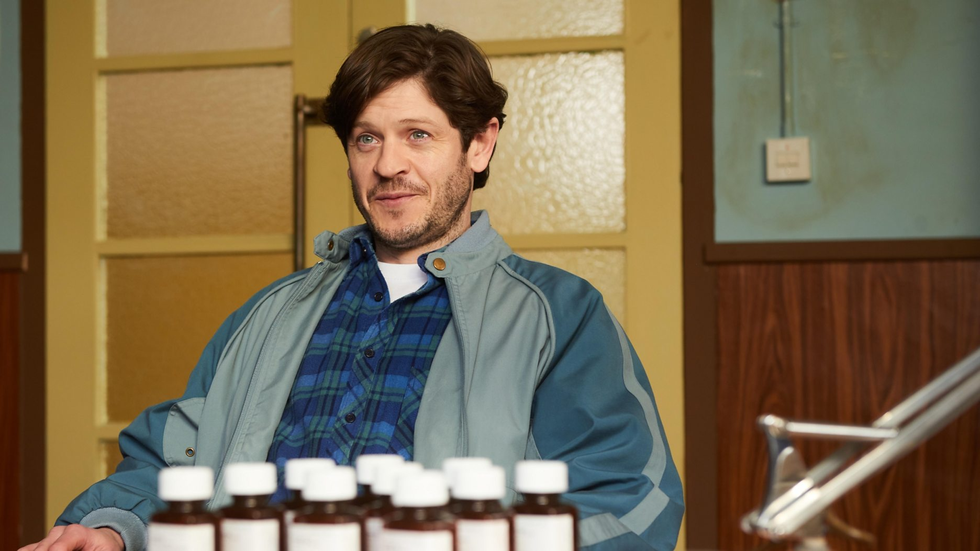Screenwriter Russell T Davies' determination to dominate your Christmas viewing schedule knows no bounds.
As if a hotly-anticipated new series of Doctor Who wasn't enough, he's also stepped up to executive produce the upcoming BBC film Men Up, a dramatised take on the real-life story of five Welshmen who signed up for a drugs trial in Swansea’s Morriston Hospital in the mid-90s, only to find out that it was the world’s first testing site for the erectile dysfunction drug Viagra.
Written by Matthew Barry, the cast includes Iwan Rheon (Game Of Thrones), Aneurin Barnard (Dunkirk), Phaldut Sharma (Sherwood), Paul Rhys (A Discovery of Witches), Steffan Rhodri (House of the Dragon), Mark Lewis Jones (Gangs Of London) and Joanna Page (Gavin & Stacey).
The official BBC synopsis teases: “Men Up explores the fragilities of our characters in pursuit of their ultimate reward... the return of a romantic connection in their lives. But as the drug brings the hope of a return to that once-lost intimacy, the men realise the hard work has only just begun. The trial will take them to some very unexpected places and force them to reassess their lives.”
The backstory
Sildenafil citrate – or to call it by its brand name, Viagra – was first synthesised in 1989 by chemists working on a treatment for angina and high blood pressure at Pfizer’s research laboratory in Sandwich, Kent.
It was known as project UK92480. Four years later it was taken almost 300 miles across the country to Morriston Hospital in Swansea, for the first human tests of the drug.
According to The Observer, Dr Ian Osterloh, who was in charge of the clinical development of Viagra said: “Clinical development begins when a company thinks it's got a useful drug, but hasn't had it tested on humans. Once you have enough data you send off literally truck loads of paper to the regulatory authority.”
Testing began, and it was seen as a failure at first. A Pfizer chemist, David Brown, told Bloomberg that by June 1993: “I was given an ultimatum, basically: ‘Come back in September. If you’ve not got good data then, we’re closing it’.”
The trial
A few days later, a group of Welsh miners signed up to test the drug at the hospital, in the context of it being a medicine to help blood and heart related issues. But according to Brown, a brief aside at the end of the men’s post-trial session changed everything: “At the end, there’s always kind of an open question: Is there anything else you noticed you want to report? One of the men put up his hand and said, ‘Well, I seemed to have more erections during the night than normal,’ and all the others kind of smiled and said, ‘So did we.’ That was the breakthrough.”
Brown used the miner’s experiences to shift the focus of the drug's development, securing another £150,000 from his bosses to do more trials with Sildenafil, but this time with the focus of the study being the treatment of impotence.
There were more trials undertaken – this time in Bristol, as well as in France, Norway and Sweden – and the men needed to fit the criteria of being over 18, of having erectile dysfunction for more than six months. They also needed to have been in a heterosexual relationship for more than six months.
In order to “help” the men in the trials, pre-internet, specialist hardcore porn had to be brought into the country. Pfizer R&D man, David Gibney explained to Bloomberg: “The harder pornography wasn’t really allowed in the U.K. at that time… I think the unit had to have a Home Office licence to use the images in that study.”
The men in these week-long trials were fitted with a RigiScan (which measure the frequency, rigidity and duration of erections), given the drug and shown the X-rated films. But at the end of the trials, when any unused drugs had to be returned to the chemists, Brown noted, “Some of them would not give the drug back.”
More than 21 random-controlled trials took place, with more than 4,000 patients. The trials eventually recorded that about “75 to 80 per cent of men showed a clinically significant improvement in erectile or sexual function on sildenafil compared to around 25 per cent on placebo.”
The result
Viagra was patented two years later in 1996, approved by the FDA to treat erectile dysfunction in 1998, and hit the shelves later that year. Sales peaked in 2008, when Viagra pulled in $1.93 billion in a year.
Men Up will be on BBC One on 28 December.
















